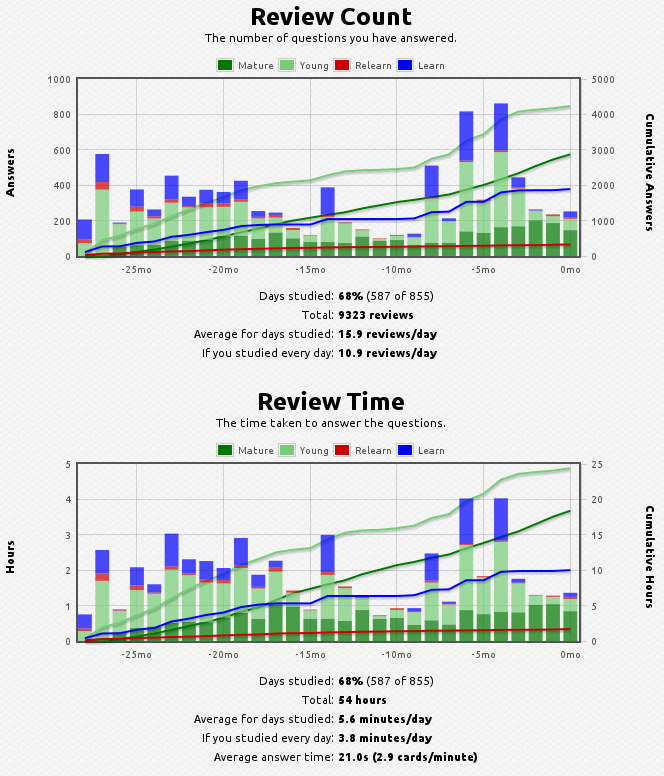Previously
We’ve just went over a practical example of the scheme. Now, let’s talk stats and conclusions.
So how does it work out, really?
While I can’t offer you any peer-reviewed, double-blind study on the validity of the method I’ve described above. Subjectively however, I can tell you that I am convinced adopting the technique has had a great effect on improving the time effectiveness of learning stuff I want to know. Without fail, for every such source, whether a book, a course, technical documentation or otherwise, I have progressed beyond just that "feel-good" sensation and actually was able to recall the most important information many, many months after first absorbing it.
However, I do have some objective, if not statistically representative, data. Take a look at the following figures, which describe the total time and total number of card reviews throughout my entire usage history, with my ~850 card collection, grown over time:

As you can see, the amount of time per day, even if artificially inflated by the aforementioned commuting, is laughably small when compared to the benefits. The benefits themselves, in turn, are indirectly demonstrated by the portion of "relearn" (i.e. "I forgot all about it") card reviews in the overall scheme - Anki/SRS really is that effective in helping you remember [1].
In closing
It would be a disservice to Anki if I’d fail to mention that it is also an excellent tool for helping in learning a language. Anki was, after all, originally created to aid its author in studying Japanese.
In fact, a comprehensive collection of community-created decks has been made available, spanning not only multiple languages but also subjects such as Biology, Geography, Physics, and others.
Finally, I hope I have shared some of the enthusiasm for Spaced-Repetition-assisted learning in the context of technical knowledge [2]. I encourage you to try it out for a small dataset, and see how it goes - as long as you have a minimum of self-control and curiosity, you should benefit from adopting this technique. Maybe it won’t help you win "Jeopardy!", but it will certainly provide you with a powerful tool when dealing with the ever increasing corpus of information that must be absorbed in order to stay up to date, and to keep in touch with the "core" knowledge that serves as the foundation for your daily technical decisions.


Twitter
Google+
Facebook
Reddit
LinkedIn
StumbleUpon
Email